The RJ & DEIJ Corner: Meetups & Events Recaps (January to March 2024)
In this update, NAPD’s DEIJ Coordinator, Brittany Gail Thomas (BGT), Esq., recaps recent NAPD meetups and events related to racial justice and diversity, equity, inclusion, and justice.
JANUARY 2024
Racial Justice Meetup: An Exploration of Racial Justice & Capital Defense Work
Meetup Speaker: Christian Lassiter, Esq., Capital Fellow, Federal Death Penalty Resource Counsel Project
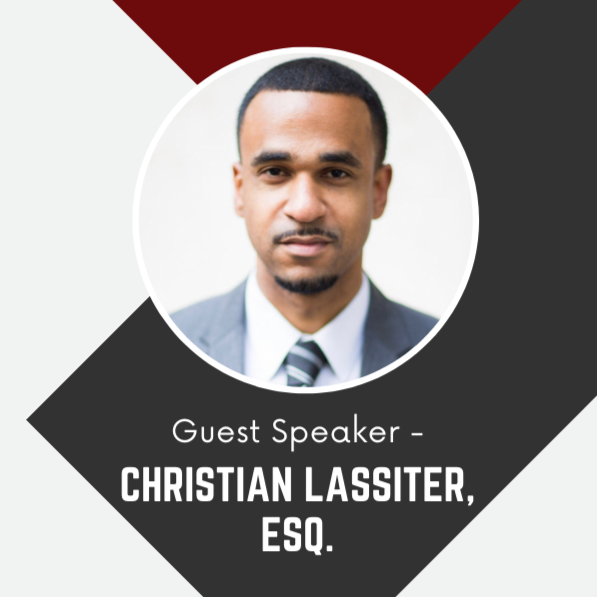
To start our 2024 meetup season, the Racial Justice Meetup welcomed Christian Lassiter, Esq. A public defender with both state and federal experience, Christian also used his current experience as a Capital Fellow with the Federal Death Penalty Resource Counsel Project to present on racial justice and capital defense work.
Christian provided an overview of the history of lynching and its relation to the death penalty. He confirmed that death penalty work is mostly dominated by white lawyers and it is often difficult for Black and other advocates of color to break into the field even with its roots being firmly planted in racism. Considering the stakes, Christian emphasized the importance of equity and cultural competence in creating capital defense teams. Specifically, he discussed new efforts to recruit persons of various backgrounds to make sure capital defense teams are more equitable and reflective of the people represented. Christian concluded his talk by reminding us that speaking up about race during client advocacy is a must while doing this work.
A big thank you to Christian for his expertise and candor about this important racial justice topic!
DEIJ Meetup: The Burden & Burnout of DEIB Work
Meetup Speaker: Charles M. Fox, Jr. M.A.P.P., Director of Diversity & Development, Legal Aid Society of Suffolk County, Inc.
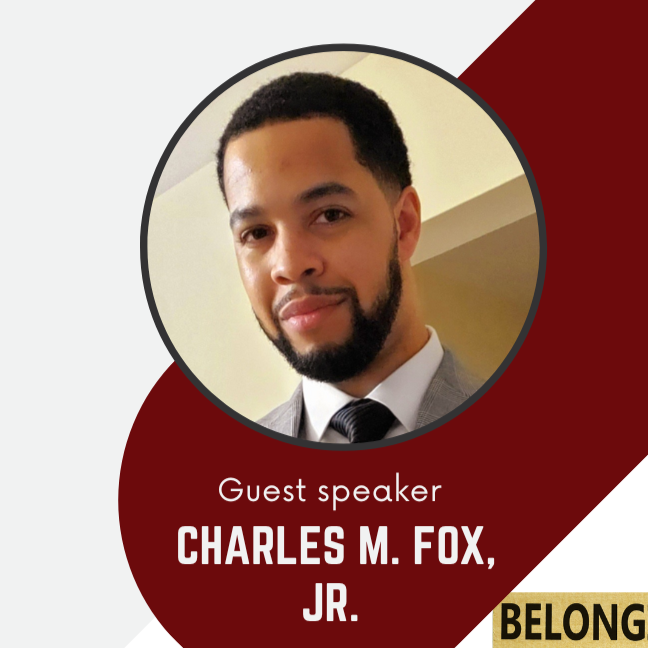
The momentum did not stop when Charles M. Fox entered our meetup space. Addressing the performative start of the DEI surge and ways to combat DEI fatigue and burnout, Charles set the virtual stage on fire. Charles’ upfront and unapologetic presentation provided us with the motivation and empowerment we needed to keep up the fight for DEI.
We are more than grateful for all that Charles gave to this community during this powerful meetup!
Read The DEIJ Meetup’s Season Starts Off Addressing DEI Fatigue & Burnout for more about this meetup. Read more from Charles – It’s Not That Complicated: Basic Truths about DEI.
FEBRUARY 2024
Racial Justice Meetup: The Historical and Current Impact of Racial Injustice on Active Substance Use Disorders
Meetup Speaker: Tony White, Director of Outreach, the Fletcher Group
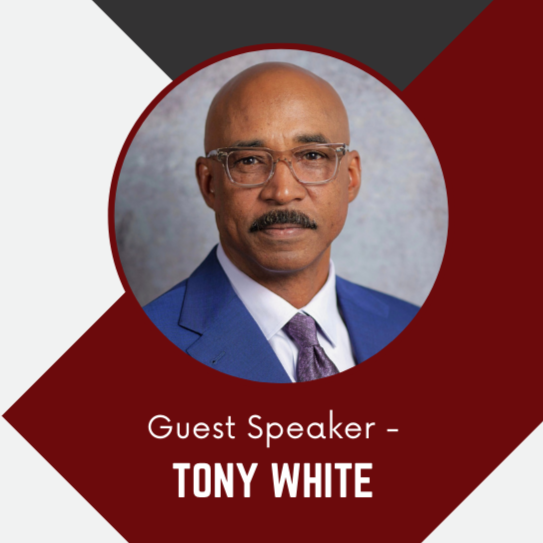
Tony learned the significance of substance use recovery by watching his father’s recovery journey and experiencing its impact not only on himself but also his family. It is with that viewpoint and years of experience advocating for those impacted by substance use disorders (SUD) that Tony presented for the Racial Justice Meetup.
Tony began by sharing quotes that connected SUD and racial injustice. He methodically discussed the generational passing down of trauma and its further correlation to the oppressed becoming the oppressor (lateral oppression). Tony walked us through some SUD history and educated us on how that further led to laws being created and criminalization. He explored the impact how racial injustice compounds the need for escape. With such, he dove into how communities of color are being left behind and not given access to resources to combat SUD and properly recover. Tony made sure to tie all of this into the work we do as public defense advocates. He concluded that SUD impacts everyone. Tony was clear: when it comes to SUD, judges, prosecutors, and fellow defenders are no better than the clients.
In reflection of his experience with us, Tony says:
It was a privilege to participate in the Racial Justice Meetup! The group seemed enthusiastic and open to the presentation. I enjoyed how the participants identified the need for a space to connect and express their honest frustrations in a safe space or forum. I hope that the presentation and discussion gave the PDs and their staff a vocabulary to advocate for their clients with Substance Use Disorder and incorporate it into their defense of them to address the racial, gender, and social stigma that comes from being an individual from a marginalized community with an SUD.
Thank you, Tony, for educating us and reminding us that our fight for racial justice must include the fight against the criminalization of those with SUD!
DEIJ Meetup & Webinar Mashup: Beyond Black History Month
Meetup Speaker: Rachel Lindley, Director of Diversity, Equity and Inclusion; Maryland Office of the Public Defender
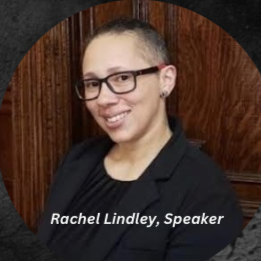
On February 28, 2024, it was a DEIJ Meetup and Webinar Mashup when Rachel Lindley, MS, CD presented to the entire NAPD community for the Beyond Black History presentation.
Immediately, Rachel made it clear that Black History Month is treated like a transaction versus a transformative time. Noting that February is filled with so much Black History and as soon as March hits Black excellence is snatched away, Rachel went on to discuss why Black History Month is not enough and noted that we cannot limit the contributions of Black people or any marginalized group to just one month. As Rachel put it, “We have to make a noise year-round.”
But Rachel went further. While many acknowledge Black History Month, it appears to be performative and designated only to February. Rachel declared that there is a history of loving Black products but not the Black producer. Black people continue to be silenced in the very offices that struggle to recruit and retain them. Further, Rachel pointed out that offices continue to be ill-equipped to manage not just the racism outside of its doors but within them.
Then Rachel begged the question, How can we create, foster, and cultivate equitable and inclusive spaces to honor black public defense professionals?
Rachel recommended viable options like self-care, training, mentorship, support, accountability, investment, and reevaluation. In order to do this, Rachel made it clear that money and engaged people are required to ensure effective implementation. A true DEI advocate, Rachel reminded us all that “DEI is not a department. It’s a practice.” A practice that is worthy of investment and support.
In reflection on the webinar, Rachel adds:
Angela Davis said, “In a racist society, it is not enough to be non-racist, we must be anti-racist.” The path to becoming an anti-racist is a journey, one that has to extend beyond Black History Month. We have been acknowledging and celebrating Black excellence during the month of February for over 50 years yet we still incarcerate Black people at a disproportionate rate. In the workplace, we have systemic exclusion of opportunities, earn less, experience microagressions and bias, etc. I am appreciative of NAPD for giving me the space to stress the importance of a transformational action.
Rachel also recommends you review this video.
We are grateful for Rachel’s transparency and dedication to all things DEI+ this Black History Month and all year long!
Be sure to also read A Plea for Change: Black History Month Edition.
MARCH 2024
Racial Justice Meetup: A Historical Review & Critical Discussion about the Whitewashing of Social Work and its Impact on Racial & Social Justice
Meetup Speaker: Stephanne Thornton, NAPD’s Social Work Training & Resources Coordinator. Read her bio here.
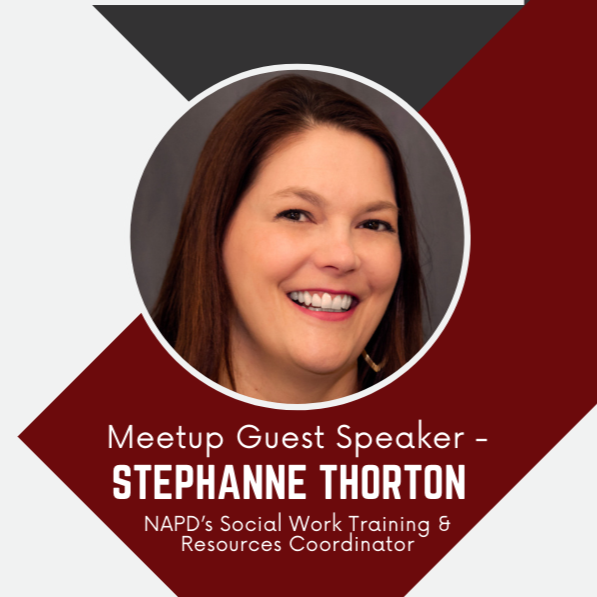
March is Social Work Month and there was no better way to celebrate it than a presentation by our Social Work Training & Resources Coordinator, Stephanne Thornton. Stephanne led a presentation on whitewashing of social work history and its impact on racial & social justice. She discussed the history of social work in the legal system and how the ideals imposed by social workers were both racist and classist. Specifically, social work focus was on the white middle class person as the ideal person. This focus prevented historical figures like Frederick Douglas, W.E.B. DuBois, & Eugene Kinckle Jones from being considered social workers when they really were.
Stephanne transitioned the discussion to the National Association of Social Workers (NASW). In response to the Black Lives Matter movement, NASW took responsibility for social work’s racist history and made new commitments. They are still working on putting those commitments into action. Stephanne advised that local laws related to banning DEI ultimately impacts how social work is taught and implemented.
Moving forward, Stephanne recommended that social workers have to (1) be willing to step up and step back, especially when it’s in the best interest of the clients, (2) take accountability with self and hold stakeholders accountable, and (3) get beyond the discomfort and speak up and out about that discomfort (i.e., racial differences).
Stephanne adds:
I shared about how social work has its origin in criminal legal advocacy, but there is also the whitewashing of social work history that has overlooked the important person-centered social justice efforts by Black advocates who did social work but predated the term “social worker.” I had such a positive experience hearing folks engage about their observations of BIPOC people who are doing the work yet are uncredited/overshadowed by people with privilege. It was a really great format for us to appreciate social workers but also recognize that we need to be more inclusive of the historical approach to social work.
We appreciate Stephanne’s presentation and expertise! Social workers, be sure to join the social worker listserv and meetup! To join, send a blank email to: Social-Workers+subscribe@NAPD.groups.io.
DEIJ Meetup: Doing Social Justice Work in Your DEIB Practice
Meetup Speaker: KC Quirk, Statewide Social Work Director, New Mexico Law Offices of the Public Defender
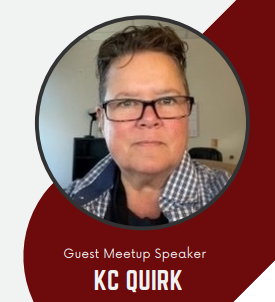
The DEIJ Meetup was excited to have KC Quirk take the virtual stage to discuss the importance of doing the social justice work in our DEIB practice.
An experienced social worker and social justice advocate, KC jumped in on discussing the difference between racial justice and social justice. KC shared the core values of social work and discussed how the dignity of people and social justice are inherent in the work. Knowledgeable of the history of racism in social work, KC addressed this hypocrisy and the performative work amongst social workers.
KC further addressed the connection between DEI and social work. Specifically, KC noted that social work is supposed to serve people with an equitable lens and social workers are supposed to use their privilege and access to resources to further support people. KC also explored the impact of inequity and white supremacy as the creators of systematic oppression and horizontal hostility. KC further described equity as breaking up the loaf of bread and sharing it to level the playing field. But as KC indicated institutional backing is necessary for real equity to be achieved.
When it comes to DEI work, KC seconded Rachel Lindley’s assertion that “DEI is not a department. It’s a practice.” Further, KC added that “DEI is everybody’s job, not just the DEI leader and/or committee.” KC addressed the issues of the time and noted that the current DEI backlash is a part of the backlash from Black Lives Matters movement. KC concluded, “Black Lives Matter wouldn’t be a necessary slogan if all lives really matter.”
KC reflects:
We must do more to interrupt the cycles of oppression that keep people in the clutches of poverty, fueled by racism, sexism and homo/transphobia and reinforced in a criminal legal system that perpetuates the problems by not seeking resolve for the systemic conditions which are overwhelmingly incarcerating poor people, people of color, predominantly Black, Latine, and Native American and LGBTQ folk.
We need to move beyond seeking justice in the courtrooms to advocating for social justice by calling out the racist, classist and homophobic institutions and ideologies that continue to arrest and incarcerate the most vulnerable among us.
May we remember what KC taught us throughout this forthright presentation: “We must always start our work from an anti-oppression stand point.” We hear you KC and we thank you!
Rise. Resist. Represent. Conference: BGT Leads Two Panels Featuring Racial Justice & DEIJ Advocates
From March 14th through March 16, 2024, NAPD hosted its annual virtual Rise. Resist. Represent. (R3) Conference. Offering over a dozen topic areas, R3 provided skills training, opportunities to explore innovations, systemic litigation, development research projects, and to networking with thousands with fellow public defense professionals across the nation.
In step with the conference, it was important to share with the NAPD community the talent, expertise, connection, and work that has been done in both the Racial Justice and DEIJ Meetups. In order to do that, I thought it was important to have two panel discussions that shed a light on current issues in the public defense community and featured the diverse and powerful voices of those advocating within it. Thus, came the ideas for both the Forgot About DEI panel and the Advocating While Black: The Perspectives & Experiences of Black Men in Public Defense panel.
Forgot About DEI
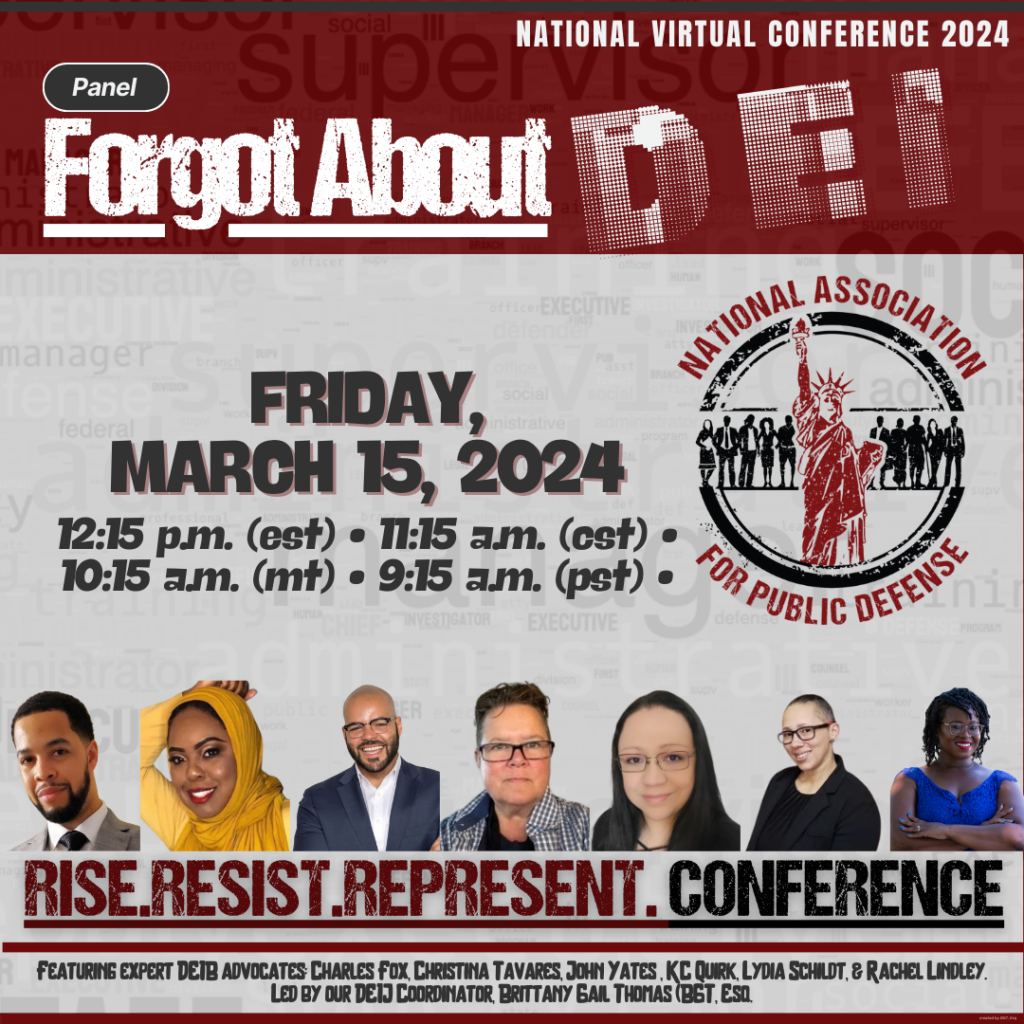
First up was the Forgot About DEI panel on Friday, March 15, 2024 at 12:15 p.m. Following the murder of George Floyd, the country swelled with both outrage and hopes for change. One glimmer of hope came in the form of DEIB initiatives and programming. Years later, the attack on DEI has intensified across the country with no signs of stopping. All of a sudden, it’s like everybody FORGOT ABOUT DEI (cue Forgot About Dre instrumental).
It was important to bring together an intersection of diverse DEI advocates to add power for this panel. Diverse it was. The panel included the voices of Black, Indigenous, Latino, and LGBTQIA+ communities from various professional backgrounds and public defense offices in different parts of the nation (MD, MT, NM, and NY). More so, the panel was packed with unapologetic voices in the DEI+ community that were unabashed in critiquing the field, advocating for it, and empowering those working within it.
To say that the panelists were on fire is an understatement. The panelists addressed where we were then, where we are now, and where we need to go. Answer after answer and statement after statement built upon each other to ensure that participants were informed about what needs to be done and challenged to do better. Whether under attack or harshly criticized, panelists would not let up on the importance of DEI work and its greater impact on public defense and the world. DEI advocates with heart, the panel also ensured that we remember to take care of ourselves as we advocate.
“The hallmark of truly supporting something and believing in it is to continue to push forward despite push back. It is working through adversity and speaking louder than the naysayers. And with May right around the corner and the 4 year anniversary of George Floyd’s murder, we are so far from being united. It is important, now more than ever, for organizations to support DEI(B,J,A) work. Your clients and coworkers need you to rage against atrocities such as overturning affirmative action, “don’t say gay” bills, and anti-DEI legislation . Because we are better and our organizations are better when we work alongside people different from ourselves and create environments of true belonging. Speaking on this panel was invigorating and eye opening. I thank everyone on the panel for being honest, open and vulnerable. It reminded me why I continue to do the work and stay in the fight.” – Rachel Lindley
“Don’t forget about DEI because our clients need us to do more than just get them out of jail or reduce their sentencing. They need us to work toward changing the system and eradicating the racist, classist and homophobic institutional oppression that keeps folks stuck in the spiral of a repressive and obsolete carceral system.” – KC Quirk
“This entire panel ignited the need to really focus on DEI especially considering where our country is today. We are in the midst of fundamental freedoms being taken away that we have fought so hard to achieve. It felt good to know that my colleagues (Charles, Lydia, KC, John, Rachel, and Brittany (BGT)) all have the same mission and we are fighting a common goal. Stay tuned for part 2!!” – Christina Travares
“Don’t forget about DEI because for me it means survival – figuratively and literally. The scariest thing I’ve seen is a white man scared to lose his privileges. Throughout history to today we see that fear turns into desperation and anger. Evidenced by genocide, boarding schools, slavery, the school to prison pipeline red lining, foster care, “war on drugs” which is a war on black and brown people, government policies that are set up to oppress the black, brown and LGBTQ2+ communities. For the last 500+ years my people have fought to survive. There is no rest for we are ever vigilant in this fight for our basic human rights. This is my reason why DEI is so important.” – Lydia Schildt
“Don’t forget about DEI because we didn’t come this far just to come this far, because all the efforts that our ancestors and our communities have fought for are under attack, because we owe it to ourselves and our children to continue this work, because we will never become a more perfect Union unless we always remember DEI!” – John Yates
“This panel was a wonderful reminder of why DEI work is so important and why we must keep it at the forefront of the conversation in the public defense and criminal legal space. What stuck out to me most was that the panel itself exemplified how much of a strength diversity is. Different people with different backgrounds all committed to ensuring that equity remains in our minds as we move forward. I was proud to have been a part of it and I look forward to follow-up conversations that delve into the crucial need for DEI with respect to the work that is so near and dear to all of us.“ – Charles Fox, Jr.
We couldn’t agree more!! Thank you to our amazing panelists:
- Charles for bringing the fire every time;
- John for his holistic thoughtfulness;
- KC for keeping us focused on social justice;
- Lydia for her vulnerability; and
- Rachel for always reminding us to “care not carry.”
Each of you brings so much light and love to the practice. I, for one, am honored to do this work with each of you and happily created and led this panel because of you!
Whether you are a DEI+ professional or supporter of DEIB+work, we know that the attendees had their cups filled during this panel. This panel exceeded its goal to further their understanding the importance of DEI+ work in both social and racial justice, as well as public defense. It was empowering, inspiring, and so much more!
So what’s next? We look forward to the continuation of this candid conversation at the Racial Justice Conference and next year’s R3 Conference. See you there!
Advocating While Black: The Perspectives & Experiences of Black Men in Public Defense
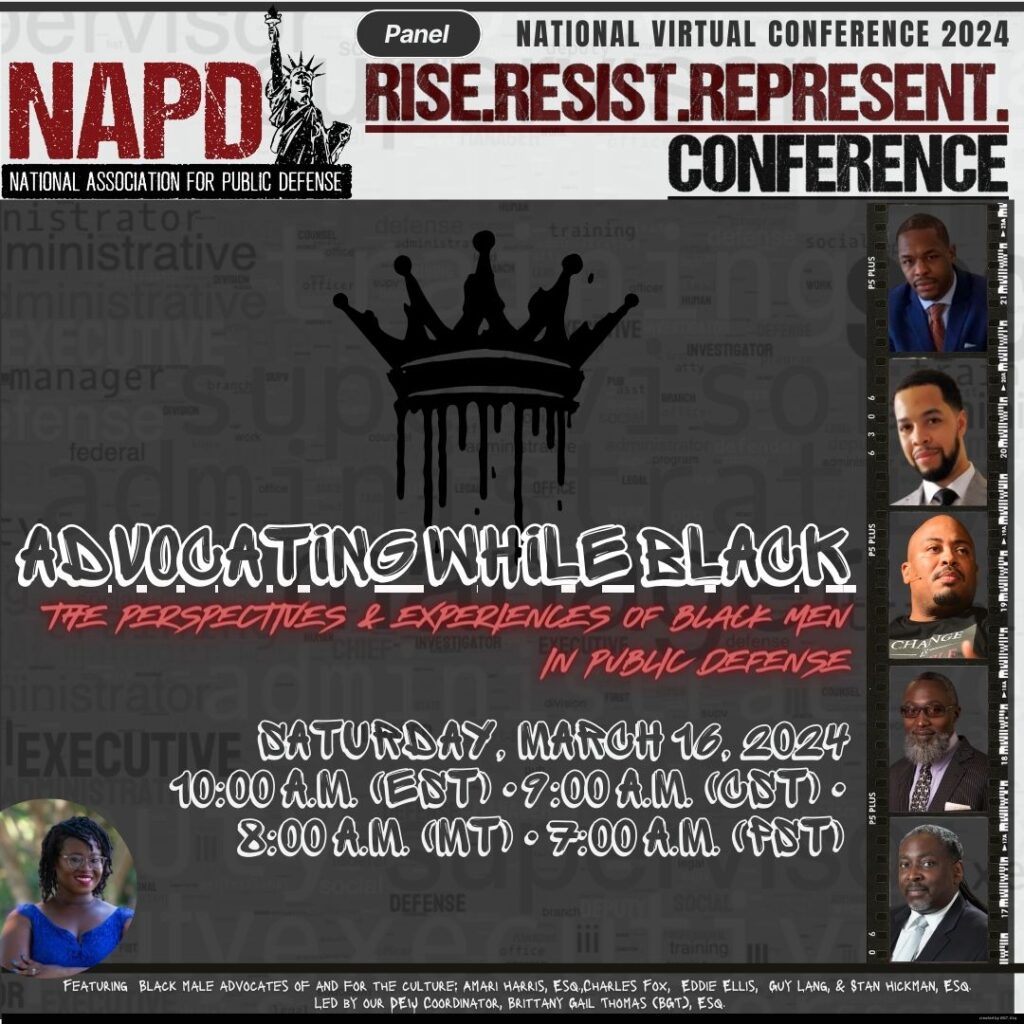
On March 16, 2024, the Advocating While Black: The Perspectives & Experiences of Black Men in Public Defense panel was one of the sessions that opened up the R3 Conference that early Saturday morning.
When conceiving of this panel, I wanted to make space for Black men to speak about their experiences being in public defense while also experiencing the various complexities of being Black men in this society in real time. In neither space are they safe to be who they are nor are they respected for the fullness of who they are. To pull it off, the space not only had to be safe but the speakers also had to be both unapologetic about who they are and fearless in sharing their experiences. Immediately, I knew what kings needed to be a part of this important panel.
Proudly taking their seats at the virtual table were 5 dynamic Black men who have turned adversity to power in serving the public defense community and beyond – Amari Harris, Esq., Charles M. Fox, Jr., M.A.P.P., Eddie Ellis, Guy Lang, and Stan Hickman, Esq. (honorable mention to Christian Lassiter, Esq.).
The tone was set when I introduced the Modern Day Lynching video to provide the attendees with a baseline perspective on what it means to be born as a Black male in America. The panel was solely focused on the perspectives and experiences of Black men in public defense work. From managing racial trauma to responding to performative workspaces, the panelists discussed their lived experience expertise being a part of the culture while representing the culture in their various roles in public defense. Guy led the discussion on cultural duality. Guy brought the community into perspective and discussed how his Blackness had contributed to his ease in embracing community to impact change. Guy’s work as a community advocate has been a transformative force of change in the public defender world.
Next Charles addressed and challenged the idea that working in public defense means there is an immunity to racial bias and an automatic cultural competence badge given. While sharing his experiences as a Black man fighting for real DEI+ implementation in public defense spaces, Charles stressed the importance of cultural humility and doing the internal work. Charles was frank about the impact of lax mentalities and performative actions of members of the public defense community and its impact on oppressed people, including the Black men you work with and represent. Eddie added that it’s important to understand and respect clients as human beings. That, ultimately, is being truly client-centered. Eddie summed it up by saying, “Don’t come to dismantle a system and become just like the system.”
Stan followed up and discussed navigating advocating for oneself in white dominated offices, organizations, and courtrooms. Stan was clear that respect was a must and shared examples of when he has had to demand just that. Stan’s non-negotiable stance provided the inspirational push for Black men, and all oppressed people, to stand in their power.
While they individually face their own trauma and challenges, space is not often made to focus on wellness for Black men. These men manage the great work of serving clients who most often look like them, a worthy yet heavy responsibility, but self-care isn’t a mainstay and support is nearly non-existent. Amari and Eddie tackled this last segment of the panel by exploring what support looks like for Black men. Amari discussed what is needed as attorney and advocate in public defense, while Eddie talked about the support needed for Black male clients. Both made a point that Black men need and deserve support whether it’s going to therapy or being provided with parenting classes to succeed as fathers. Ultimately, in order for them to thrive instead of just survive, Black men in public defense need the support and respect to be who they are so they can do what they need to do for the community. Representation in public defense really does matter.
Here are the final thoughts from our esteemed panelists:
“This panel was a necessary and enriching experience. I’m glad that I got to be in a room with so many strong and dedicated black men and share our experiences with the public defender world. There were so many valuable lessons taken from this session from both us and the participants. I hope every public defender office recognizes how unique and special it is to have Black defenders in their offices and treat them with the equity and value that they bring to the system. There’s nothing easy about being even an activist participant in a system that is a derivative of slavery and challenges your concept of freedom each and every day. I hope that we all honor those particular sacrifices. Thank you NAPD, and BGT, for bringing us together and I look forward to the next session.” – Amari Harris, Esq.
“I felt so inspired to be a part of the panel, it was an unbelievable blessing to be a part of something that had such an impact on those who watched. This was a unique opportunity to share our thoughts unapologetically, about what we do, in the spaces in which we operate. I for one am grateful to BGT for that opportunity. I’m also grateful to my fellow panelist. They were bringing truth to what we do and what we experience and it felt tremendous to share that space with each one of them. I sincerely hope that sessions like this occur more frequently and that other strong brothers get an opportunity to express themselves and share their experiences!” – Stan Hickman, Esq.
“First, I must say, this was an amazing opportunity. At the conclusion of the conference, I felt empowered and awakened. The Advocating While Black: The Perspectives & Experiences of Black Men in Public Defense presentation spoke most to me. It hit closest to home and found itself in closest proximity to me and the work that I do. There were some amazing nuggets and jewels shared with the attendees as well as with the panelists. I truly learned much from the esteemed group of panelists that you put together. BGT really knows how to pick them. I was honored to be in a space carved out for Black men. This isn’t the norm. I’m excited for all the things to come for NAPD and BGT. I’m looking forward to other opportunities to listen to and learn from my colleagues. This was a phenomenal conference.” – Guy Lang
“Hopefully, this panel was insightful for anyone who has ever considered what it is like to be a Black man working in the public defense space. The perspectives of these men were vast, informed, and authentic. Black men remain one of the most misunderstood and misrepresented groups in our society so it is of vital importance to create spaces where Black men can share their perspectives and experiences safely. Credit to BGT for having the foresight and conviction to create such a space. Remember that Black men are not a monolith and our coworkers and clients don’t all share the same experiences. It is important to listen, hear, and understand our perspectives. We have so much to contribute but are often made to feel less than. Whether we have a PHD or no formal education at all, we are powerful with dreams and aspirations of our own.” – Charles M. Fox, Jr.
“Many of us recognize that the criminal *justice system is broken and needs to be dismantled from its current state, but many people start to become just like the system they want to dismantle! For those of us who work in this criminal justice field that care about the people that we’re serving and work on behalf of, we must continue humanizing people along the way or we’re no better than that system we wanted to do away with!” – Eddie Ellis
Bravo to these dynamic Black men who shook the room as they spoke truth to power! They provided participants with an opportunity to listen and learn about their reality while advocating for themselves and the clients we serve as Black men. Collectively, they used their voices in homage to their ancestors. We honor their perspectives, experiences, and all that they do in the name of true justice. Thank you!
Want to hear more from these speakers again? We look forward to a continuation of this conversation at the Racial Justice Conference and next year’s R3 Conference. Don’t miss it!
All speakers spoke from their own expertise and experiences. Their personal opinions and perspectives are not representative of the organization(s) they work for and/or with.
Interested in being on the Racial Justice and/or DEIJ listserv? Want to connect with us at the Racial Justice and/or DEIJ meetups? Email BGT at brittanygt@publicdefenders.us to sign-up and for more information.
Save the Date: NAPD’s Racial Justice Conference is in Montgomery, Alabama, on October 28-31, 2024. Registration opens May 15.

